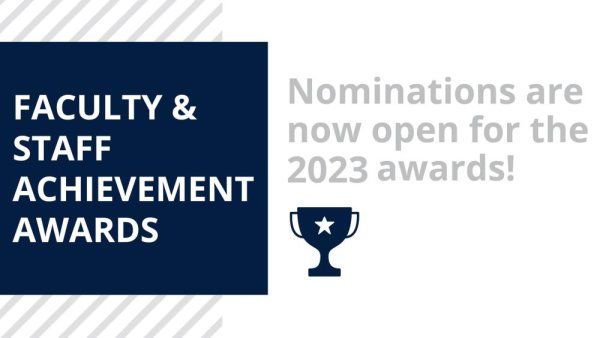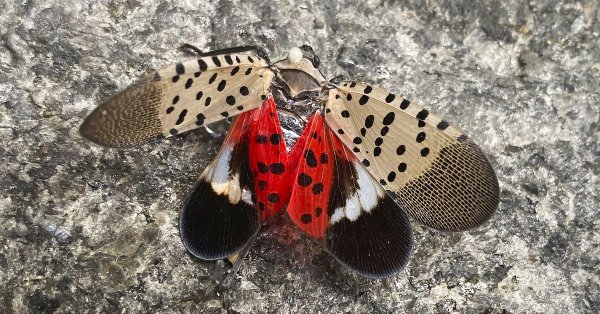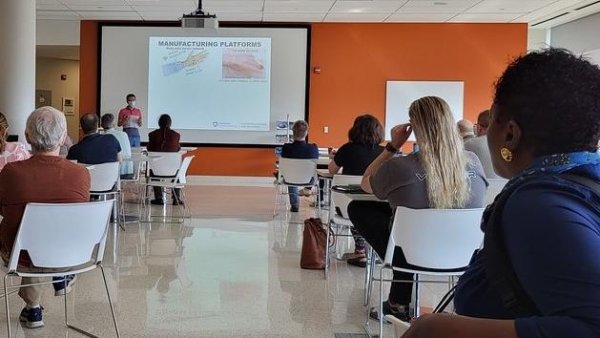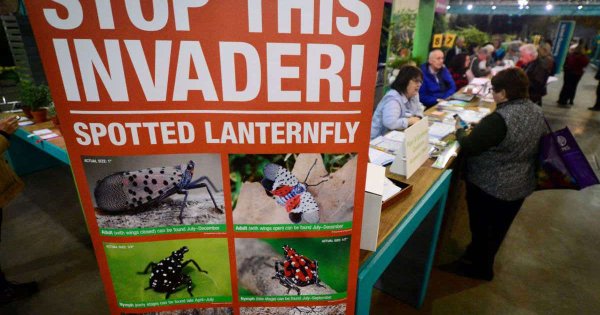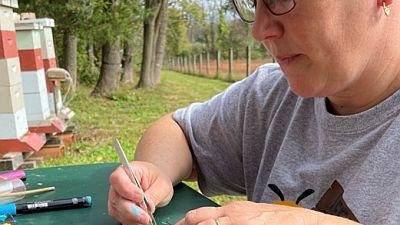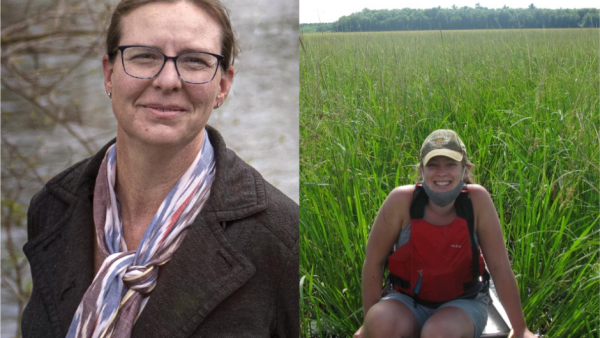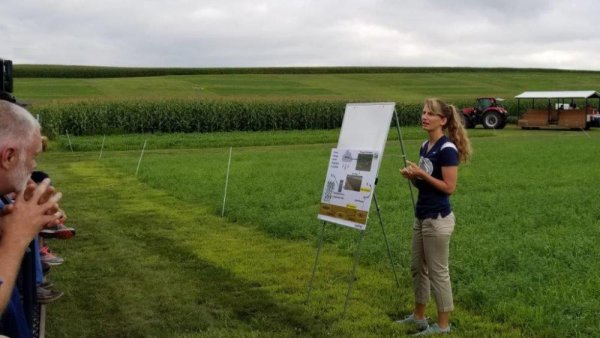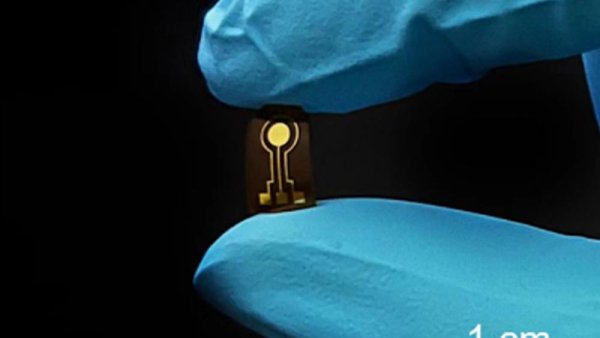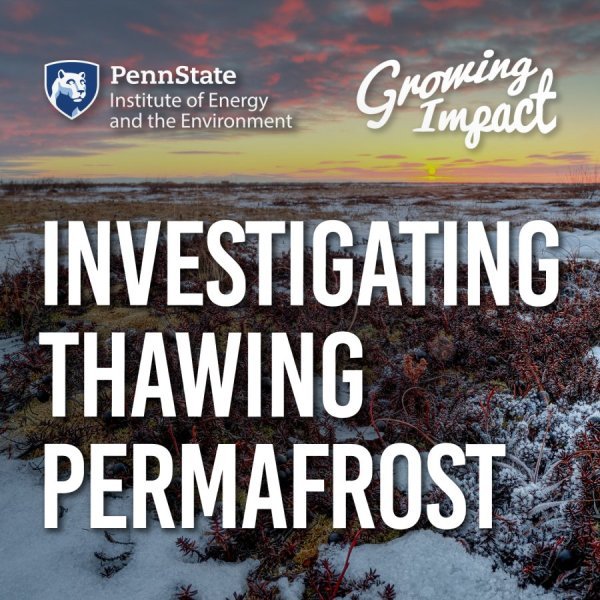Nominations now open for faculty and staff achievement awards for 2023
| psu.edu
Nominations are now being accepted for the annual Faculty and Staff Achievement Awards, which recognize the efforts of faculty and staff who go beyond their basic duties to bring about positive and lasting change to the University and/or to the community.
Blowtorching spotted lanternflies is, in fact, a bad idea
| vox.com
What the war on invasive lanternflies gets wrong. This article quotes Anne Johnson, a doctoral researcher in the Department of Entomology, and Brian Walsh, horticulture educator at Penn State Extension.
EarthTalks series returns Sept. 19 with exploration of solar energy development
| psu.edu
The Earth and Environmental Systems Institute's EarthTalks series returns and will explore the development of solar energy through multiple, and intersecting, lenses. The fall series resumes on Sept. 19 and continues through Nov. 14. Talks will take place at 4 p.m. on Mondays in 112 Walker Building.
Millennium Café series to feature special editions in October, November
| psu.edu
The Millennium Café, held every Tuesday by the Materials Research Institute featuring two talks by Penn State researchers that serve as an exchange of ideas and solutions, will hold three special sessions in October and November.
Does squishing invasive lanternflies really help stop their spread?
| msn.com
Several states in the eastern US encourage residents to stomp on spotted lanternflies that threaten grapevines and other crops. But smooshing isn't a long-term solution. This article quotes Julie Urban, associate research professor of entomology, and Emelie Swackhamer, senior extension educator with Penn State Extension.
All the convincing you'll need to ditch bottled water for good
| huffpost.com
The plastic packaging of your beloved bottled water may pose certain health risks. Here's what experts want you to know. This article quotes Sherri Mason, associate research professor and director of sustainability at Penn State Behrend.
Grant funds research that could help certification of organic honey bee products
| psu.edu
A $1.5 million grant from the U.S. Department of Agriculture will enable a team of researchers — led by Penn State entomologists — to assess foraging patterns of honey bees on organic farms, with an eye toward creating opportunities for beekeepers to produce certified-organic apiary products.
Penn State’s Stories from the Field conversation series returns for fall
| psu.edu
Penn State’s “Stories from the Field” conversation series is returning this fall with three new sessions. Each was designed to bring together academics and practitioners to discuss the challenges and opportunities of applied research and community engagement.
University Libraries to offer fall workshops on data visualization topics
| psu.edu
Beginning Sept. 20, the Penn State University Libraries will offer six workshops on data visualization topics, including best practices for creating effective data visualizations and tools commonly used for analytics and visualization: Microsoft Power BI, ArcGIS, Tableau and R. Participants will have the opportunity to apply techniques to examples, discover resources necessary to get started with the tools, and learn about additional resources available at the University Libraries for continued self-learning.
Climate change is a parenting issue
| inquirer.com
The most important thing we can do for our kids is work toward bold, immediate climate action. This op-ed was written by IEE Associate Director Erica Smithwick.
No-till management may reduce nitrous oxide gas releases, fight climate change
| psu.edu
Scientists have long known that no-till farming reduces erosion and lessens water and nutrient runoff from crop fields, but now a new study by a team of Penn State researchers suggests that limiting soil disturbance may also diminish releases of nitrous oxide.
Novel implantable sensor sniffs out possible signals of osteoarthritis
| psu.edu
Penn State researchers collaborated with an international team to develop a flexible, implantable sensor capable of continuous nitric oxide monitoring, which can help identify early signs of osteoarthritis after joint damage.

